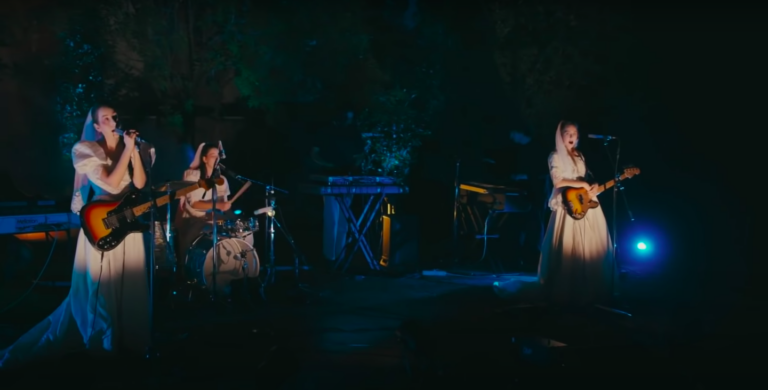A study discovered that about 70% of British adults prefer pop music to any other genre. However, regardless of your preferred genre of music, you can agree that music plays a significant role in our lives. It is especially important during festive occasions, so if you’re looking forward to throwing a special party soon but don’t know how best to select an up-to-date and suitable playlist, you can try these tips.
For creators looking to get their track into the right playlist to reach the right audience, a playlist pitching strategy should be clear. Consider deciding on a Spotify playlist placement service to assist you in this process.
Just as selecting the right playlist can make your party a hit, using effective strategies is crucial for growing your online presence. For instance, if you’re focused on growing TikTok followers, engaging with the right strategies and services can enhance your reach and presence on the platform.
Know the duration of the party
Knowing how long the party would go on is a significant determinant of your playlist selection. Depending on how long your party is, your playlist could be a long or a short one. However, you should be prepared for it to go on a little longer than you planned to. Sometimes, a party may get so exciting that guests may request an extension. Therefore, keep in mind that a list of fifty to sixty songs when scheduling for a few hours’ events is appropriate.
Do not shuffle your music library
A playlist must be organised and flow seamlessly. When you shuffle your music library, you end up creating a clutter of disorderly playlists. This can usually make your guests agitated and turn the party atmosphere into a sour one. If you are trendy with music, you will realise that most itunes tips emphasise this point. Most professional DJs create a plan on how to get the crowd into the groove of a party. To this, the DJ tends to arrange his tracks in a specific order to move from slow to up-tempo. To make it easier for you, set a theme (or multiple ones) and a purpose, and you will leave lasting memories in the minds of party guests.
Ensure good sound quality
You may have the best tracks for the party, but without the right sound, no one is really going to enjoy it. Surround sound is crisp with alternating mid-range volumes for a successful event. This does not mean you should turn up the volume- it makes conversation impossible, and after all your guests came to socialise as well. In another breath, you do not want the volume too low that the crowd shouts at you to pump it up. To get optimal sound at a reasonable volume, customise your volume settings, and have it play at varying levels based on music genres. Also, remember that simple home theatres are not appropriate for parties where more than twenty people attend. It will be beneficial to use a party speaker system.
Let your playlist match the party’s style and theme
Have you ever been to a party and felt the music choice was out of place? It usually happens when a DJ fails to find out what type of party it is. Whether it is a barbecue party, workplace party, a birthday, or a family reunion party, the chosen songs must seamlessly blend with the occasion. You should also consider the audience attending the event. You should know the age range of the guests present. Knowing this can help you play age-appropriate music and songs that can be enjoyed by all.
Interact with the guests for song requests
It is a wrong move not to engage party guests during an event, but it is also wrong not to indulge in their song requests. The purpose of a party is to have a good time; that should always be at the back of your mind. The trick to sustaining the tempo of the crowd is not to accept too many requests. That may turn the party into a playlist-requesting group and shift your focus from a pre-arranged list.
Work your way up
At parties, the DJ starts with gentle tunes to build the crowd up to a crescendo. When you start with big and popular songs, you tend to run out of ideas when the event picks up. Besides, you do not wish to overwhelm party guests or lose their trust in the DJ. Most professional jockeys veer slightly away from their pre-arranged lists; they mix up tunes with forgotten hits, and this adds more spice to the festivity.
Keep a stash of hits
As mentioned in point one, preparing for any eventuality is a must. Sometimes, the best of jockeys run into some hiccups despite how awesome the party has been. It may be a specific track that failed to play, or a fight broke out but got quickly quelled. Your stash of back to back hits in moments like that could be lifesaving. You may wish to call this playlist your Plan B. Aside from it being a Plan B, that stash could become a great crowd-pleaser that you may have to rely on for the rest of the party time.
Have a good mixture of genres
As the saying goes, ‘variety is the spice of life,’ and that applies to your playlist as well. You do not want to be described as a monotonous disc jockey who plays only one music style. Every British crowd loves pop music, and truth be told, one can never have too much of a good thing. However, parties are different, and they present an eclectic mix of attendees. Classics, metal beats, fast songs, etc. are loved by other people. Avoid playing four pieces of the same genre. Switch to another category and get your crowd yearning for more.
A party will become dull when the crowd can easily predict the next song to be played. Be adventurous with your list and mix a few nostalgic tunes with the popular new ones. Notable artists such as Britney Spears, Beyonce, George Michael, Madonna, and the Spice Girls all have full ranges of songs to fit any occasion. These may not necessarily be your favourite tunes, but once your crowd acknowledges them as world-acclaimed singers, the majority will get into the spirit of the party. Indeed it’s also your responsibility to be up-to-date with new music and if that’s something you’re struggling with, you can always hire a professional DJ.












